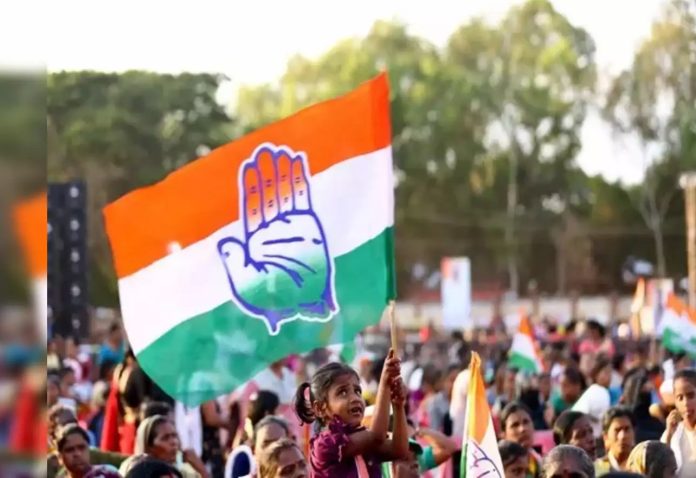Amogh Rohmetra
The recent visit of Congress President Mallikarjun Kharge and Rahul Gandhi to Jammu and Kashmir, just a week after the election announcement, has raised eyebrows. This sudden visit has a lot to read into and for a reason. Jammu and Kashmir has witnessed four elections in the last decade, including three Lok Sabha polls and one assembly election. How many times did Rahul Gandhi visit the state before Narendra Modi after election announcements? Not once.
In fact, during the 2024 Lok Sabha polls, Rahul, Kharge, and Priyanka Gandhi skipped campaigning in J&K for their candidates or alliance partners. In contrast, PM Modi, Amit Shah, Rajnath Singh, and Yogi Adityanath actively campaigned for their candidates in Jammu and Udhampur. This trend is similar to the 2019 Lok Sabha polls, when Rahul was the party president.
The 2014 national polls saw a slightly different scenario. After the announcement of elections, then-party vice president Rahul held a rally in Doda on April 11. However, this came two weeks after Modi had already paid a visit to Vaishno Devi on March 26. In the last assembly election in J&K, elections were announced on October 25 2014. Modi beat Rahul again, holding his first rally on November 23, while Rahul’s rally followed on November 25 in Kupwara.
However, Kharge and Rahul’s swift visit this time sends a positive signal to party workers, indicating that Congress is serious about its prospects in the UT’s first election in a decade. The fact that they chose to visit J&K before Haryana (where the party had a good Lok Sabha performance) shows they believe Congress has a chance to win. This visit is significant, especially since Congress has been decimated in the last four polls.
Despite this, the party’s swift response came only after being caught off guard by the election announcement, leading to a hasty change in state leadership. The appointment of Tariq Hameed Karra from Kashmir as state president, despite the party’s primary base being in the Jammu region, raises questions. And these are old questions.
Historically, Congress’s electoral road primarily lies in the Jammu region. In 2014 polls, it won 12 seats- 5 from Jammu, 4 from Kashmir, and 3 from Ladakh. Never in at least the last three decades, has congress tally in Kashmir been something to boast about. Both in 2002 and 2008, when it formed the government, it won 15 out of 20 and 13 out of 20 seats from Jammu region. 4 out of 7 in 1996, 20 out of 26 in 1987 and 22 out of 25 in 1983 were also from Jammu region.
Yet, the party continues to appoint leaders from Kashmir, overlooking the region’s polarized politics. Vikar Rasool was the party’s first president from Jammu region since Ghulam Nabi Azad (who served as state president from 2002 to 2004). Peerzada Mohammad Sayeed, Saifuddin Soz, and G A Mir were all leaders from Kashmir who served as party presidents since 2004. Therefore, Karra’s appointment (without talking about his merits), I argue, was another surprise that party chose to go back to its older policy when it’s three in every four candidates will be from Jammu region
Further, Congress faces three significant hurdles: a divided house, unclear stand on Article 370, and maintaining alliance.
The first challenge is something that most parties will face, considering that elections have not been held for 10 years. None less than party president Kharge acknowledged this challenge, while addressing party workers. Kharge in his speech told his leadership to walk unitedly, showing that central leadership understands the challenge ahead. “Dil milein naa mile, haath milaake chalna hai”, were Kharge’s words in his speech.
Secondly, and probably the most significant challenge is that the party will be pushed to answer questions which it has earlier avoided. Rahul and Kharge chose to avoid mentioning Article 370, indicating that the subject will continue to be out of their campaign but the party will find it difficult to remain silent on it. Especially when its ally in the valley has a clear stand. Congress is the only major party with an unclear stand on Article 370.
And thirdly, even though the alliance is finalised, it won’t be easy to maintain it. For one, the party has to justify many seats being given to its ally from Kashmir because in some parts resentment is already brewing amongst party cadres, even more ticket distribution. For instance, Rajouri’s Kalakote-Sunderbani and Nowshera seats have gone to NC. The party will have to explain its leaders in waiting, as to why it chose to give away the two hindu majority seats to NC. Add to it the fact that since 1996, NC has bagged the erstwhile Kalakote seat only once in 2008 and did not win Sunderbani even once during this period. This is just one example, like many others.
Moreover, the two parties calling for “friendly fight” on five seats, clearly shows that seat sharing could not be achieved 100 per cent. In coming days, the campaign is set to be polarised, Congress will be questioned for what its alliance partner has to say in the valley.
(The author is a journalist)
Trending Now
E-Paper


